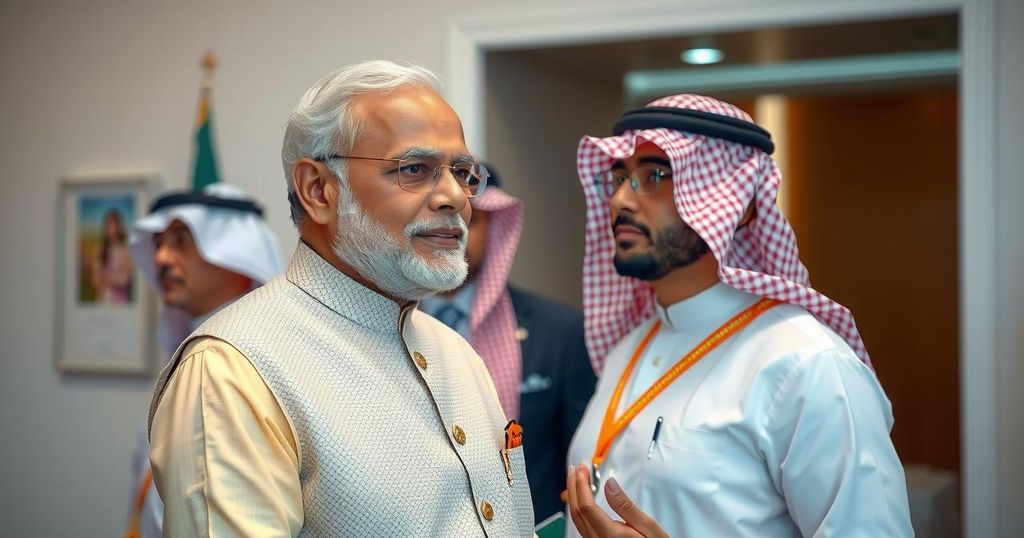Prime Minister Narendra Modi’s two-day visit to Kuwait marks the first by an Indian PM in over 40 years, aimed at enhancing bilateral relations in trade, investment, and cultural exchanges. He will meet with Kuwaiti leaders and engage with the Indian diaspora, underlining the significance of this historic visit in opening new avenues for cooperation.
Prime Minister Narendra Modi is embarking on a significant two-day visit to Kuwait, marking the first visit by an Indian Prime Minister in over four decades. The visit, at the invitation of the Amir of Kuwait, Sheikh Meshal Al-Ahmad Al-Jaber Al-Sabah, aims to enhance bilateral relations between India and Kuwait, focusing on trade, investment, energy, culture, and people-to-people interactions. Modi will meet with the Amir, the Crown Prince, and the Prime Minister of Kuwait during his stay. Additionally, he intends to engage with the Indian diaspora, visiting a labor camp that houses Indian workers and participating in community events, including the inaugural ceremony of the Gulf Cup football tournament.
The Ministry of External Affairs has indicated that this visit is anticipated to “open a new chapter” in India-Kuwait relations, building on past interactions and exploring new opportunities for collaboration. Discussions are reportedly underway regarding a bilateral investment treaty and defense cooperation agreement. The visit is also expected to strengthen India’s ties with the Gulf Cooperation Council (GCC), of which Kuwait is currently president, and which consists of key economic players in the region.
In terms of economic engagement, India stands as one of Kuwait’s leading trading partners, with two-way trade amounting to $10.47 billion in 2023-24. Indian exports to Kuwait witnessed a noteworthy increase, showcasing a year-on-year growth of 34.7%. Notably, Kuwait is a crucial supplier of crude oil to India, fulfilling approximately 3% of India’s energy needs, which underscores the importance of this bilateral relationship. Furthermore, the Kuwait Investment Authority has substantial investments exceeding $10 billion in India. With a population of one million Indians in Kuwait, the Indian community constitutes the largest expatriate group within the country, emphasizing the cultural connection between the two nations.
The historical context of India-Kuwait relations dates back several decades, with the last visit by an Indian Prime Minister occurring in 1981, when Indira Gandhi visited Kuwait. Notably, Kuwait has been a vital partner for India, facilitating substantial trade and investment, particularly in energy resources. Over the years, both nations have enjoyed strong economic ties, fostering people-to-people connections through a significant Indian expatriate population in Kuwait. The ongoing efforts to enhance bilateral relations include discussions about key agreements that can advance mutual interests, especially as Kuwait currently holds the presidency of the Gulf Cooperation Council, which plays a significant role in regional geopolitics and economics.
In conclusion, Prime Minister Narendra Modi’s visit to Kuwait signifies a historic and strategic opportunity to strengthen India-Kuwait relations after decades. The emphasis on enhancing trade, investment, and cultural ties highlights the importance of this partnership. With plans for new agreements and continued engagements, this visit is poised to fortify not only bilateral relations but also connections within the broader Gulf Cooperation Council framework. This collaborative approach serves as a promising avenue for future cooperation between India and Kuwait.
Original Source: www.hindustantimes.com






